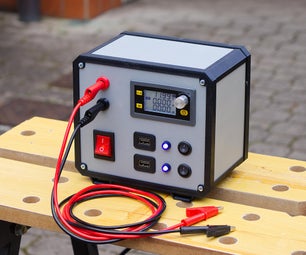Introduction: My Electric Heating With Shelly
I wanted to share my experience of home automation of my electric floor heating with the Shelly1pm modules, and the Jeedom Thermostat plugin.
This installation aims to reduce my electrical consumption, by limiting the heating if we are away from home. I will detail the installation step by step, as well as the sensors and modules installed.
For this installation, I needed 7 Shelly1pm, 7 Xiaomi Mijia thermometers, as well as 11 door / window sensors (optional).
Step 1: My Current Energy Manager, Calybox 120
I will first of all present to you my current installation with its disadvantages. This energy manager allows me to manage 2 heating zones but does not take into account our presence at home. So our heating is not optimal. This manager controls 7 Deléage TAI 61 thermostats which are present in each of my rooms.
Step 2: Thermostat Deléage TAI61
The objective will be to replace these thermostats with Shelly 1pm modules which will be controlled by my Jeedom home automation box.
Step 3: Wiring of My TAI61
1 PH. TAI61 phase power supply
2 PH. phase heating frame power supply
3 F.P. pilot wire coming from energy manager
4 N neutral heating frame power supply
5 N neutral TAI61 power supply
Step 4: Shelly 1pm Wiring
0: phase heating frame power supply
SW: nothing
L: Shelly1pm phase power supply
L1: nothing
N: Shelly1pm neutral power supply
As you can see, the assembly is very simple. To derail a bit, I put a WAGO on the 2 Neutrals (4 N and 5 N of the TAI61) and the feed N of the Shelly1pm.
IMPORTANT, it is 220volts, these operations are to be performed with the circuit breaker.
Once stalled, you can restore the electrical current.
You can now include the SHelly1pm in your Wifi network via the Shelly mobile application (I do not detail this operation, the Shelly application is very easy to use.
Step 5: MQTT Setting
Once this is done, I would use the MQTT to control my Shelly, just access the Shelly interface with its IP address, go to Internet & Security / ADVANCED - DEVELOPER SETTINGS, then check Enable action execution via MQTT. Fill Username, Password and Server with the correct port (1883 normally).
Step 6: Creation of the Shelly Under Jeedom.
For the interpretation of Mqtt on my Jeedom, I use the Jmqtt plugin, so I create my Shelly1pm under it with its topic corresponding to its serial number (information found under DEVICE INFO with the Shelly web interface) .
Step 7: Creation of on and OFF Commands
I create both On and Off commands to control my Shelly1pm.
We will turn on my heating, Off will turn it off. As simple ...
Step 8: Creation of My Thermostat Under the Plugin.
In this first page, I fill in the necessary elements (see the documentation of the plugin which is very well done).
Step 9: Creations of My Thermostat Actions.
To heat, ON Shelly1pm, Off to turn off.
Step 10: Creations of My Thermostat Modes.
Comfort 22.5 °, Eco 19.5 ° and Frost protection 16 °.
Step 11: Creations of My Thermostat Openings.
This is where I add my door sensors. They will be used to suspend my heating if a window or door to the room is open.
Step 12: Design Ipad Jeedom
Formatting of my design displayed on my Ipad used to control my Jeedom home automation box.
On this page you can see my 7 heating thermostats, as well as the management of my water heater and the heating of my swimming pool. All done with Shelly1pm. Really great these modules.
Our presence being managed by Jeedom with Nut bluetooth, wifi and our geolocation, the heating will therefore be entirely optimized according to our presence.
Step 13: Finish
For a nicer visual, I mounted a Schneider shutter on which I stuck my Xiaomi Mijia thermometer. These now replace my old TAI61 thermostats.
I hope this inspirational presentation will inspire you.











